Unique fire mummies of Kabayan
Mummification — a relatively well-studied ancient rite of preservation of the bodies of the dead - is mainly associated with embalmed Egyptian mummies. However, surprisingly well-preserved remains discovered in the Philippines have shed light on the existence of another type of mummy - fire. The uniqueness of Kabayan fire mummies is that, unlike most antiquities, they are still located in a natural environment. The caves that keep their secret have been repeatedly looted and are now considered an endangered place.
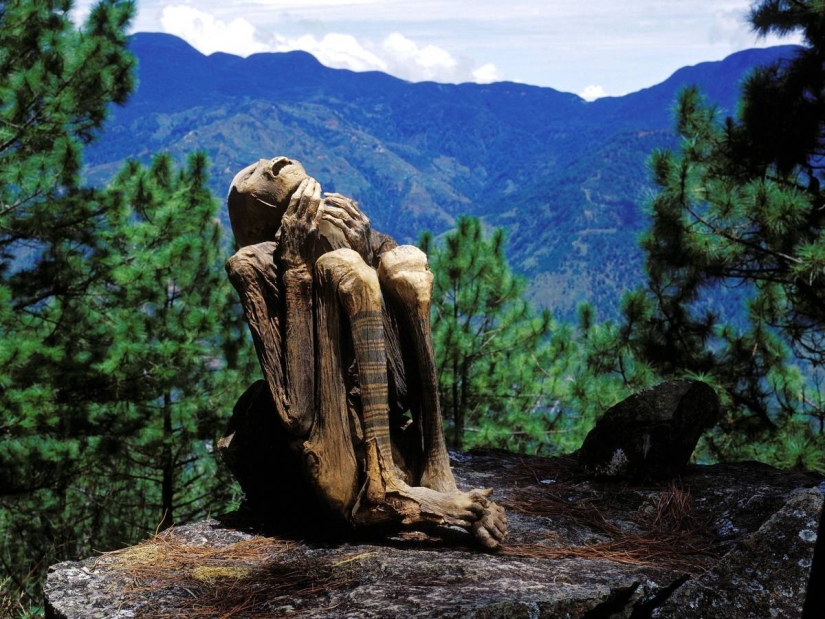
Cabayan is a municipality in the province of Benguet in the northern Philippines. About 30% of the population of the province is the Ibaloi people, whose ancestors own the secret of the unique process of mummification. The Ibaloi are convinced that the dead can help the living in solving complex life issues and share their acquired wisdom, but only if their bodies remain incorruptible. That is why hundreds of dried bodies of their ancient ancestors, beginning to date back to the XIII century, lie in the mountains.
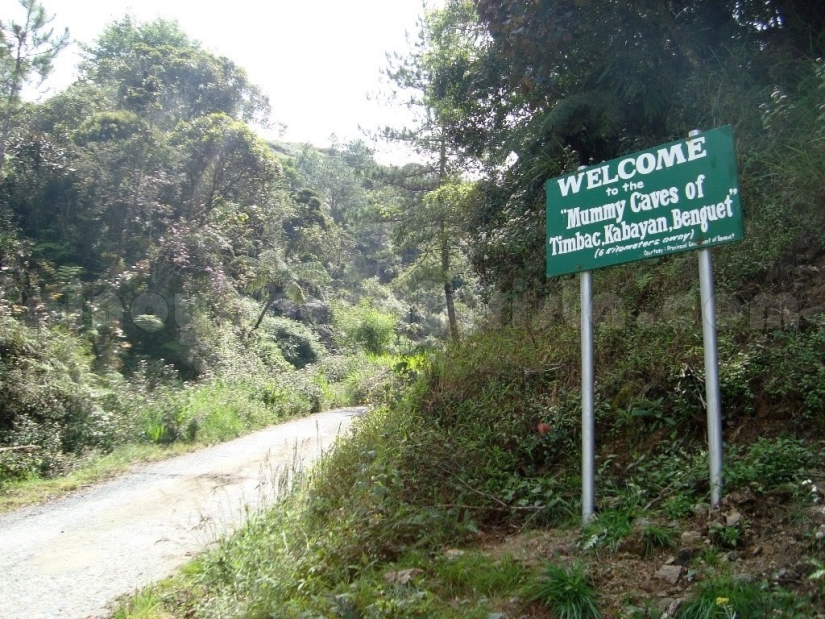
The caves were first discovered by loggers in the early 20th century, when industrial activity began in the forests of the northern Philippines. They were left unprotected, as a result of which they were partially looted. Now they are open to the public, but they are not so easy to find, because local residents and the government of the Philippines are trying to preserve their location. To the most interesting caves, you need to climb the mountains on foot for a long time with a local guide, who must necessarily be a descendant of ibaloi - otherwise the mummies will get angry.
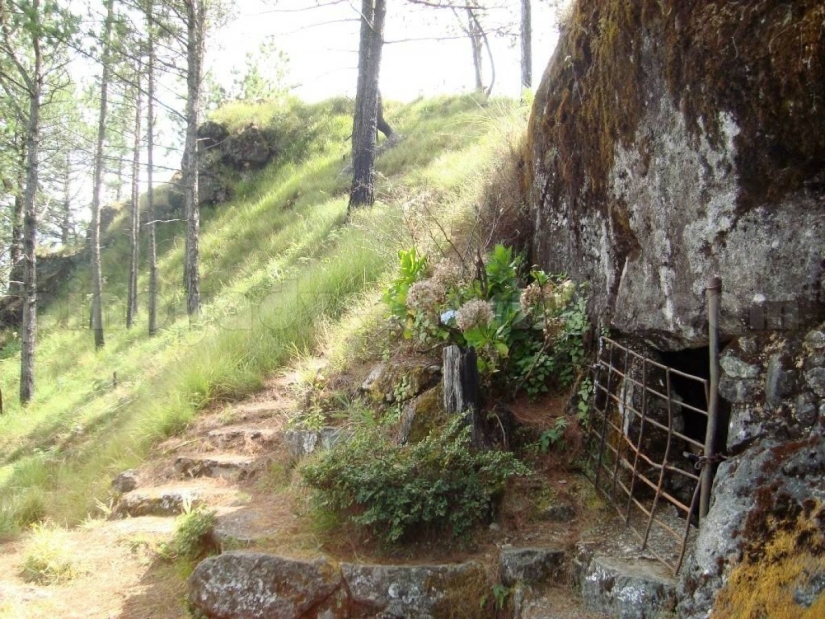
The entrance to the cave is closed by bars, but with a guide you can get directly inside and be literally at arm's length from the mummies, who have kept their secret for many centuries. The tattoos on the skin of the mummies are clearly visible, some have preserved teeth and even hair.
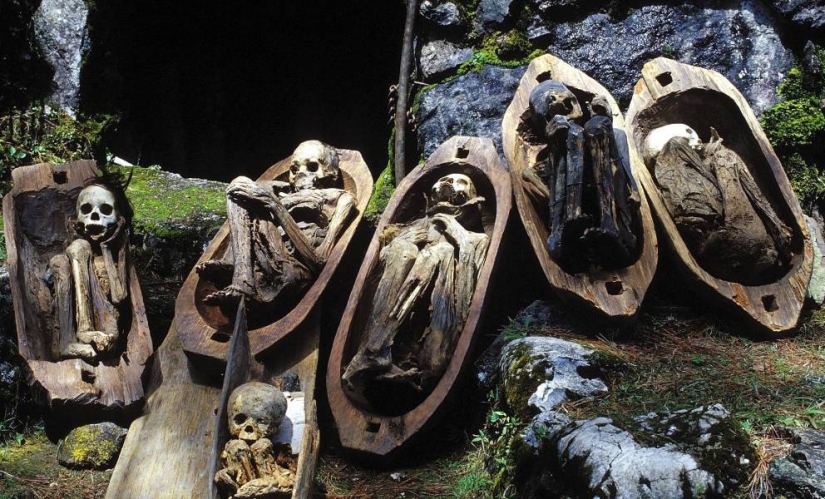
All internal organs are preserved in the body of fire mummies. It is believed that the process of mummification began during his lifetime, when the dying person was given a salty drink, which gradually begins to dehydrate the body. After death, a complex process continued, sometimes taking several weeks or even months.
The body was thoroughly washed and placed over a heat source in a sitting position. So the Ibaloi could fit more remains into a cramped cave. The bodies were never directly exposed to open fire, but simply "smoked" over a smoldering fire. The heat from the smoke gradually completely removed all the fluids from the body, leaving it stiff and dry.
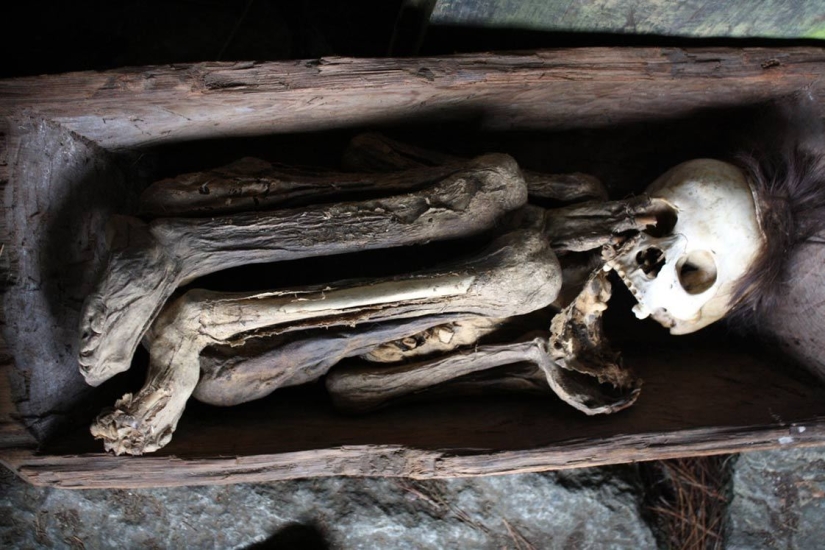
When the outside of the body was completely dried, they moved on to the final stage - drying it from the inside. The Ibaloi blew tobacco smoke into the mouth of the mummy to dry out the internal organs. After that, the completely dried body was rubbed with herbs and placed in a small oval-shaped wooden coffin inside one of the caves.
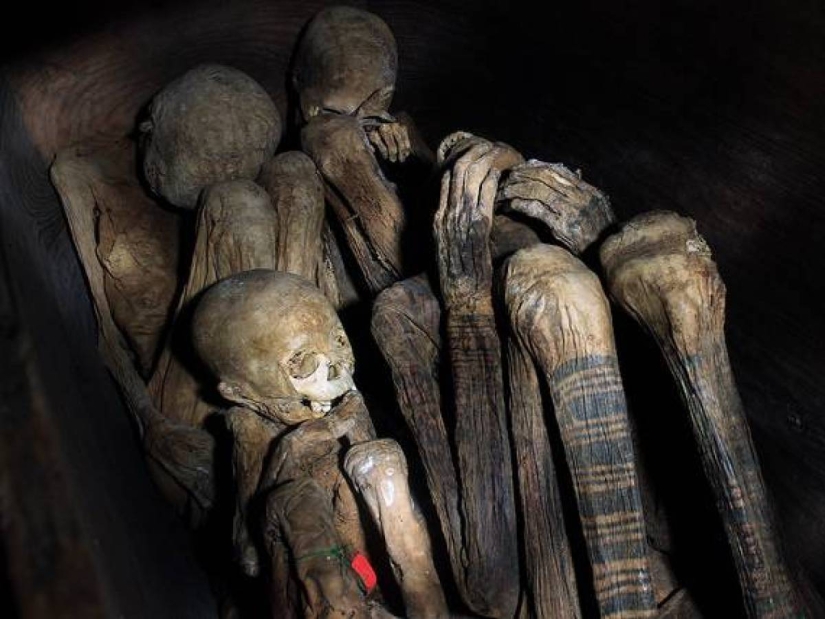
Despite the obvious antiquity and fragility of the remains, some Kabayan mummies were stolen and sold in Europe for a lot of money. A problem of this magnitude forced the Philippine Ministry of Foreign Affairs to intervene to ensure that as many remains as possible were returned to their burial site. In 2004, eight mummies were returned to the caves, but many still remain undiscovered.
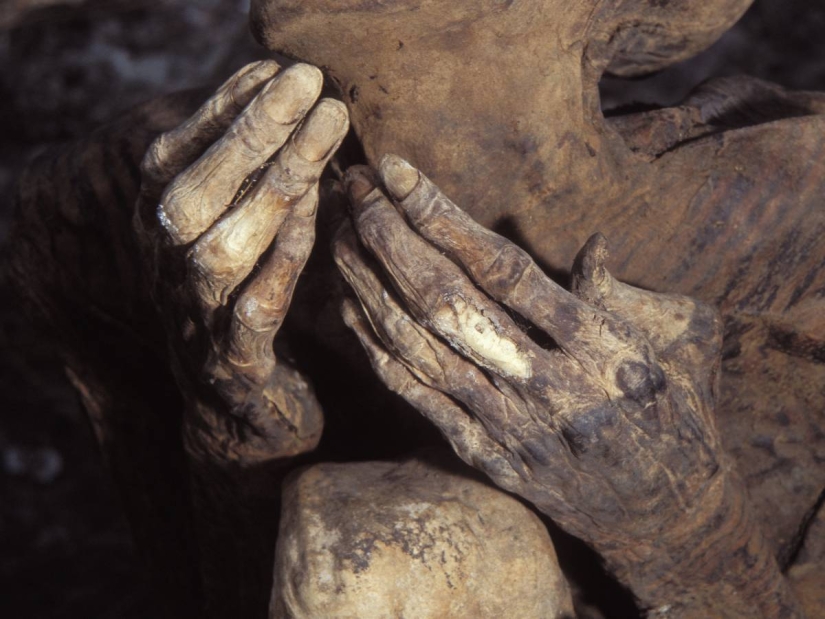
One extremely notable disappearance occurred in 1919. It was the intricately tattooed body of Chief Apo Annu, who had died about 500 years earlier. As it turned out later, the mummy was abducted by a Filipino pastor during a visit to the caves and after a while surfaced as an exhibit on display at a circus in Manila.
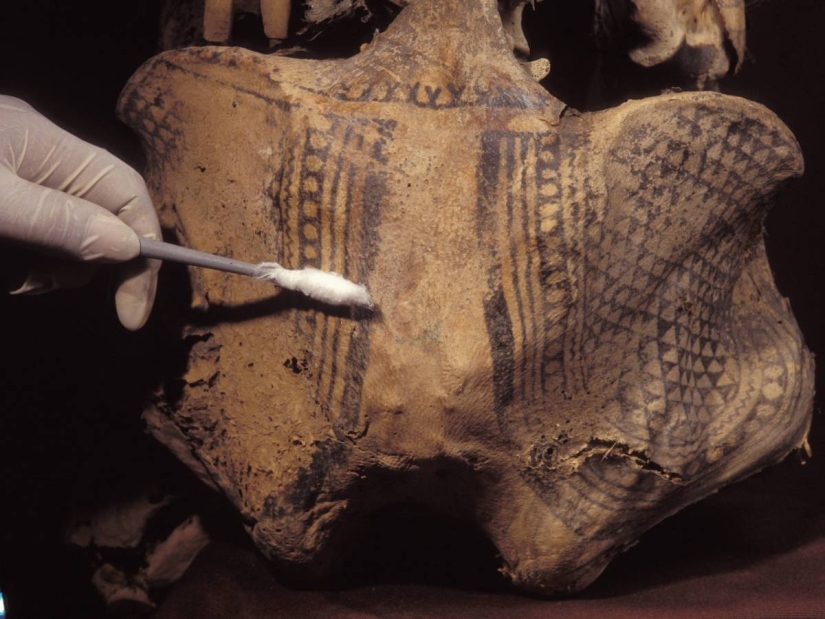
After that, the mummy changed owners several times, until in 1984 it was finally transferred to the National Museum. The museum immediately notified the government, and the body was returned to the cave and reburied with all the appropriate rituals.
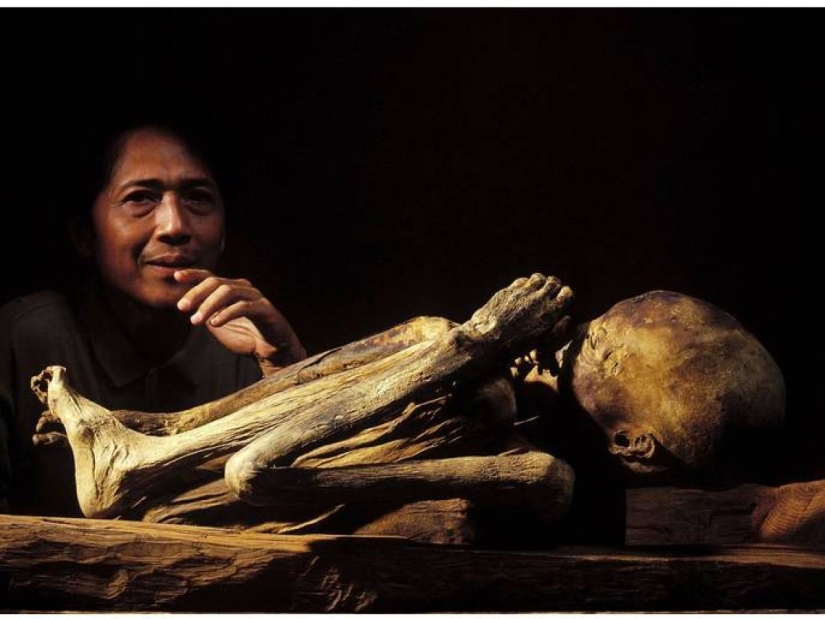
Like many other ancient burial sites, Kabayan caves are surrounded by many superstitions. Locals are sure that as a result of the desecration of the grave of Apo Anna, there is a curse on their land that causes drought, earthquakes and famine. To ensure the continued safety of the mummy, the government built a special fence around the place of its burial and offered to pay for any other necessary security measures.
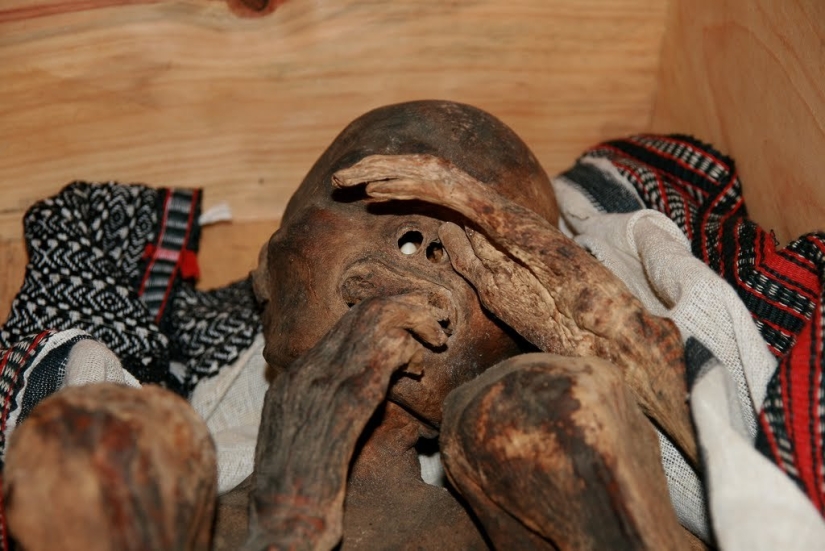
Although the Ibaloi no longer practice mummification (this art was lost with the arrival of the Spanish colonialists in the XVI century), they still revere mummies as their ancestors, consider caves sacred territory and conduct rituals there.
Keywords: Asia | History | Fire | Philippines | Caves | Mummies
Post News ArticleRecent articles

It's high time to admit that this whole hipster idea has gone too far. The concept has become so popular that even restaurants have ...

There is a perception that people only use 10% of their brain potential. But the heroes of our review, apparently, found a way to ...
Related articles

In the fall of 1972, Bill Yates traveled through the countryside in the vicinity of Tampa, Florida. At that time, he was studying ...

When a person is in a life-threatening situation is awful, but even worse when it happens to a child. 11-year-old American Terry ...

Remember how broke the "unbreakable" scoop? The photo preserved in the photo album of almost every family! A selection of vintage ...

New Year's is a time to surprise and delight loved ones not only with gifts but also with a unique presentation of the holiday ...